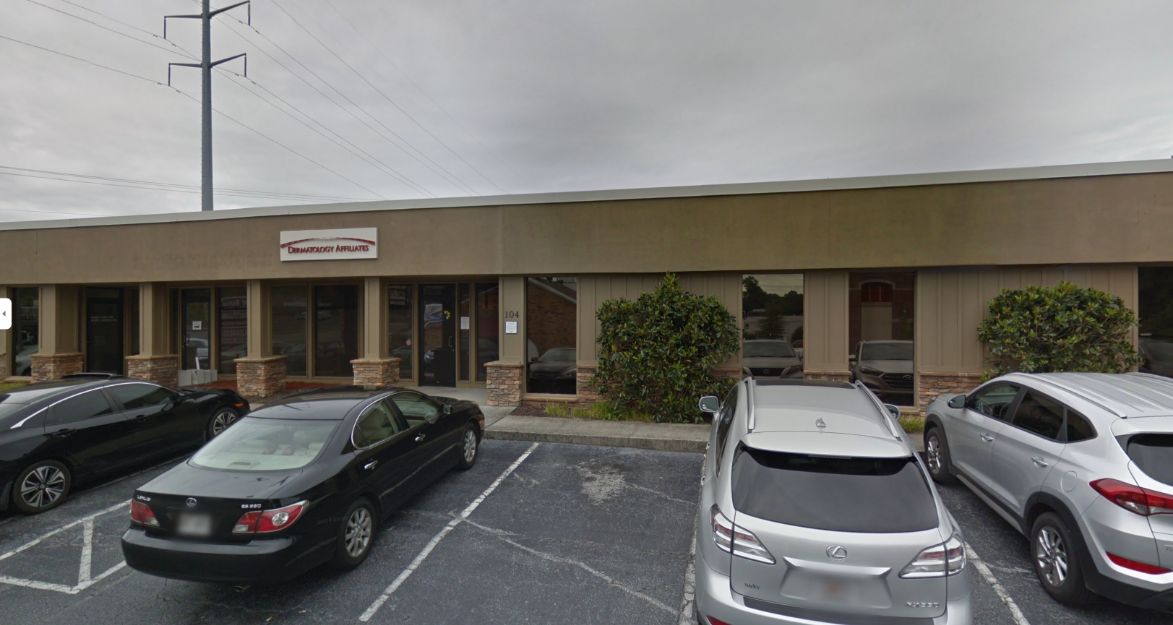Nail Fungus
Comprehensive Care for Nail Fungus at Dermatology Affiliates
Nail fungus, or onychomycosis, is a common condition that causes nails to thicken, discolor, and become brittle or distorted. This fungal infection can affect both toenails and fingernails, often starting as a small white or yellow spot under the nail and spreading deeper, leading to unsightly and sometimes painful nails.
There are several types of nail fungus, each with distinct characteristics:
Distal Subungual Onychomycosis: The most common type, caused by dermatophytes, affects the nail bed and underside of the nail, leading to thickened and yellowed nails.
White Superficial Onychomycosis: Fungal infection on the surface of the nail, creating white, powdery patches.
Proximal Subungual Onychomycosis: Less common, starts at the base of the nail and is often associated with immune system issues.
Candida Onychomycosis: Caused by yeast, leading to nail discoloration, swelling, and detachment.
At Dermatology Affiliates, our dermatologists address nail fungus through a range of effective treatments. These include oral antifungal medications that work systemically to combat the infection, medicated nail lacquers that provide direct treatment to the affected nails, and topical antifungal creams to reduce the fungal presence. In more severe cases, nail debridement is performed to thin out the thickened nails, allowing better penetration of antifungal treatments.
Learn more about nail fungus and when you're ready, schedule an appointment with Dermatology Affiliates of Atlanta today.
Examples of Nail Fungus
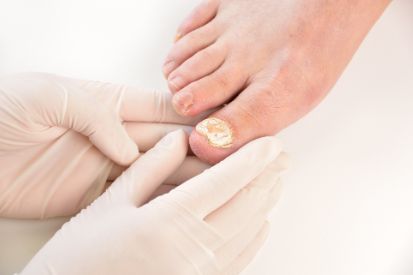
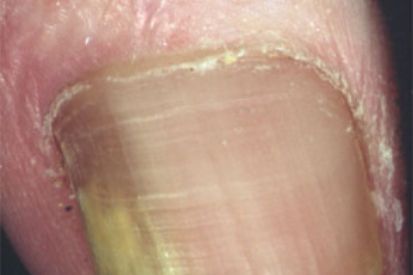
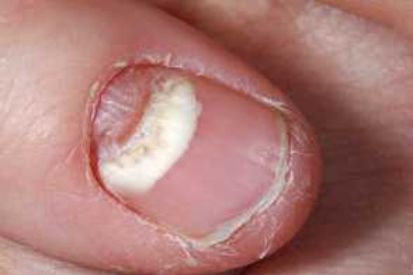
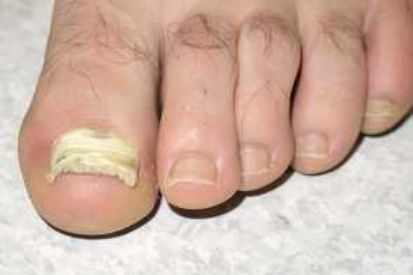
What are Symptoms of Nail Fungus?
- Debris beneath the nail.
- White or yellow spots under the nail.
- Darkening of the nail.
- Foul-smelling odor.
- Thickening nail.
- Pain in the nail.
Causes of Nail Fungus
- The fungi that cause the development of nail fungus are microscopic organisms that thrive in warm, moist environments.
How to Prevent Nail Fungus
Nail Fungus FAQs
Nail fungus is typically caused by fungal infections entering through tiny cracks in the nail or skin. It can happen in warm, damp environments like public showers. Anyone can get it, so it's more about the conditions than personal habits.
Over-the-counter treatments may help in mild cases, but dermatologists have more potent options. If you've tried home remedies without success or if the infection is severe, consulting a dermatologist ensures a targeted and effective approach.
It's best to avoid nail salons until the infection is treated. Sharing tools can spread the fungus, and the moisture in salons can make it worse. Once your dermatologist clears the infection, you can enjoy your manicures worry-free.
Patience is key. Treatment duration varies, but it can take several months for new, healthy nails to grow in. Dermatologists will monitor progress and adjust treatment if needed, ensuring the best outcome.
How Dermatology Affiliates in Atlanta Can Help with Nail Fungus
Our dermatologists create tailored treatment plans based on the specific type and severity of the nail fungus. The aim is to effectively eliminate the infection and restore healthier-looking nails. Regular follow-ups and proper nail care techniques are crucial to prevent recurrence and promote nail recovery. If you suspect you have a nail fungus issue, seeking medical attention at Dermatology Affiliates ensures you receive the most appropriate and effective care for your condition.
How to Treat Nail Fungus
Our skilled dermatology providers specialize in accurate diagnoses and tailor treatment plans to your unique needs. We offer proven antifungal medications, including a range of topical solutions that effectively target nail fungus, providing localized treatment for optimal results.
Additionally, our providers may prescribe oral antifungal medications like terbinafine or itraconazole, offering comprehensive treatment to eliminate the infection from within. Trust our expertise for accurate diagnosis and personalized solutions to address your nail fungus concerns. Schedule an appointment with for quality care and effective treatment.
Featured Blogs

- General Dermatology
- Skin Care
- Chronic Skin Conditions
Skin tags are benign growths of excess skin which form in response to rubbing and irritation. Read more to learn about what we can do about them.
Read More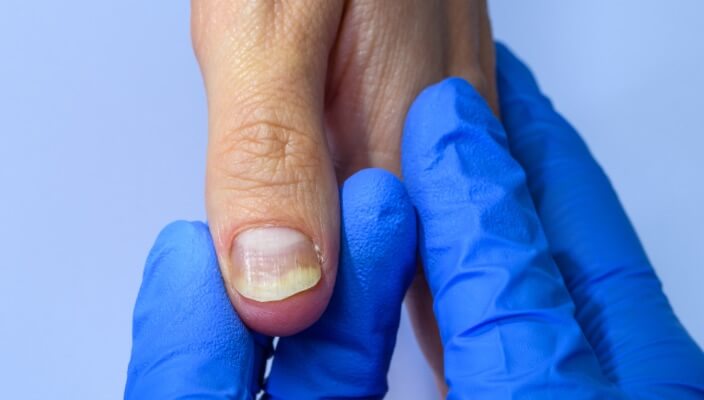
- General Dermatology
- Chronic Skin Conditions
Nail fungus can be a persistent and often misunderstood issue. In this blog, Dermatology Affiliates dispels common myths and provides evidence-based facts to help you understand and effectively address nail fungus. Whether you're dealing with discoloration, thickening, or discomfort, get the clarity you need to take the right steps toward healthy nails.
Read More
- Skin Care
- Botox
- Injectables or Fillers
- Cosmetic Treatments
In this blog, we explore how Botox®—commonly known for its cosmetic applications—has emerged as an effective treatment for chronic migraines. Discover how this innovative therapy works, its benefits, potential side effects, and what to consider when seeking relief from debilitating migraine symptoms.
Read MoreFeatured Products
Check your local office for current stock!
Check your local office for current stock!


